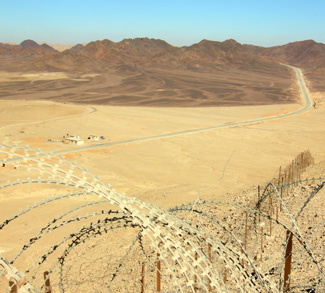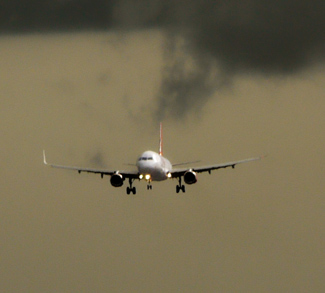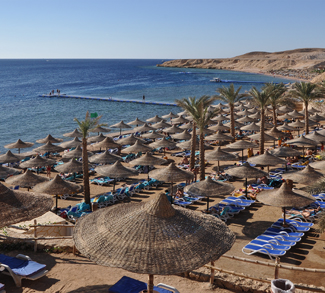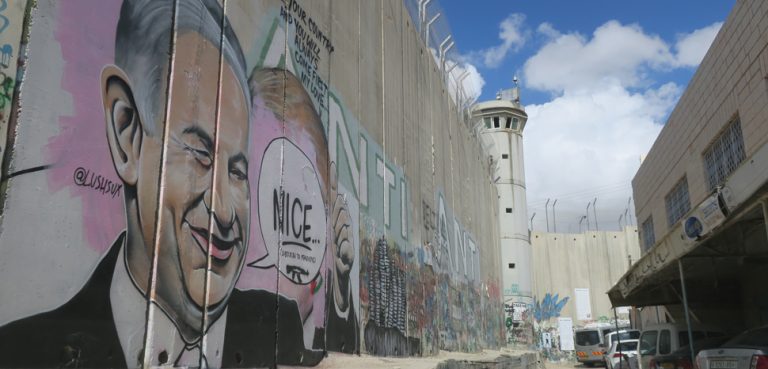The downing of an Egyptian military helicopter on the Sinai Peninsula last week reflects a deepening Islamist insurgency that has become better trained, armed, and funded since the Morsi government was toppled by the army last July.
Five Egyptian soldiers were killed in the attack, which was claimed by Ansar Beit al-Maqdis (ABM) – an extremist group that began with targeting Israeli border patrols in the Sinai back in 2011 before turning against Egyptian security forces after the fall of Morsi. Just days after the helicopter incident, an explosion was reported along a natural gas pipeline in another attack claimed by ABM. This was not the first time the group has targeted energy infrastructure in the area.
One notable feature of ABM is that the group appears to be well-armed. A Russian-made Strela 2 portable surface-to-air missile was used in the Sinai helicopter attack, which points to the presence of sophisticated weaponry from the Libyan war. There have been other indications of Libyan weapons making it to the Sinai recently – most notably in reports of Strela 2s being smuggled to Hamas in Gaza and the Egyptian military’s interception of a massive arms shipment last October – and now we are seeing these weapons being put to use in ways that will surely compound the strategic and political challenges facing the Egyptian military.
Where ABM came from remains a source of considerable disagreement. According to the Egyptian military, the group is an offshoot of the Muslim Brotherhood, though the political expedience behind this line of reasoning is fairly obvious. Others believe that ABM maintains close links with Hamas and other Palestinian militant groups, which would explain the apparent nod to the Israel-Palestine conflict in its name (Ansar Beit al-Maqdis translates into ‘Champions of Jerusalem’).
Though the group’s backers remain a question at present, the threat posed by ABM is beyond doubt. In addition to last week’s helicopter and pipeline attacks, ABM has been linked to the attempted assassination of Egypt’s interior minister and the string of bomb attacks that shook Cairo on January 24, damaging the Cairo Security Directorate among other government targets. These attacks suggest ABM is expanding beyond its original operating area in the Sinai and it can now execute complex operations in the heart of Egypt.
The geographic challenges posed by the Sinai region make it difficult for the Egyptian army to mount an effective response. For one, at over 60,000 km2 it’s a huge area to police, especially given that the Egyptian military is already stretched thin in its current role as guarantor of Egyptian political stability. The army’s past methods in pacifying the region have also been called into question. During a sweep of the Sinai last year, which actually produced a stark drop in attacks, reports surfaced describing a hard-handed and indiscriminate approach on the part of the Egyptian military.
Morsi garnered a comfortable majority of votes in the Sinai region, as the local population has long complained of its marginalization in the Egyptian political establishment. So when targeted attacks against government forces began to multiply after Morsi’s ouster, it’s not surprising that suspicions towards the local population boiled over in the army. However, this attitude risks building on an already-considerable foundation of grassroots animosity towards the Egyptian state, and in doing so increases the likelihood that Bedouin and other tribesmen will find common ground with the foreign extremists streaming into the area.
The diminishing security outlook in the Sinai poses some regional challenges, particularly for Israel. The landing path for the airport in the Israeli Red Sea resort of Eilat skirts the Sinai Peninsula, leaving commercial liners susceptible to terrorist attacks. There is also a wider threat to Eilat, made glaringly evident on January 21 when two rockets were fired on the city from across the border in Egypt. Such attacks present unique difficulties for Israel, because a direct military response would risk inflaming Egyptian public opinion and in doing so shine the populist spotlight on the Egypt-Israel Peace Treaty – a pillar of Israeli security that has thus far survived the ongoing upheavals in Egypt.
Though it may be tempting for the Egyptian military to use ABM attacks as an ongoing justification for the Muslim Brotherhood’s exile from legitimate politics, the Sinai stands alone as its own serious threat to the stability of the Egyptian state. With a military government in Cairo faced with economic breakdown, shifting regional power dynamics, and a population feeling either politically exhausted or totally disenfranchised, there is a risk that a protracted ABM campaign might actually achieve its intended effect and erode the authority of the Egyptian state.




